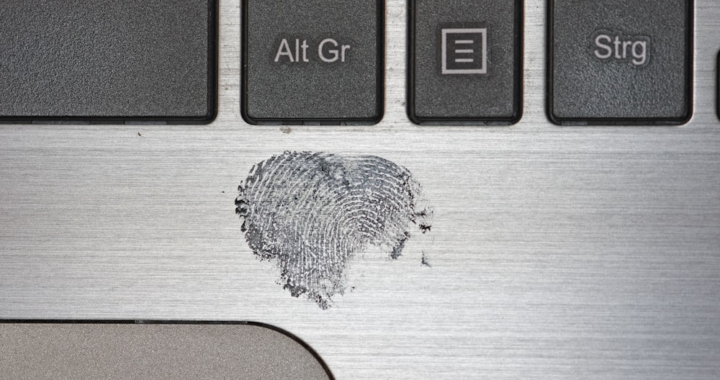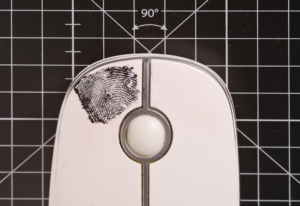In today’s digital age, mobile devices and computers have become integral parts of our lives. They store a vast amount of personal and potentially sensitive information, making them crucial tools for modern investigations. When legal matters arise, recovering and analyzing data from these devices becomes essential for uncovering the truth. This is where the specialized fields of cell phone forensics and computer forensics come into play.
While both disciplines share the common goal of extracting and examining digital evidence, they operate in distinct domains with unique methodologies and challenges. Understanding these differences is crucial for determining the appropriate investigative approach in various situations.
Cell Phone Forensics: Examining the Pocket-Sized World
Cell phone forensics focuses on extracting and analyzing data from mobile devices like smartphones and tablets. These devices hold a wealth of information, including:
- Call logs and messages
- Contacts lists
- Browsing history and app usage data
- Photos and videos
- GPS location data
- Social media activity
- Deleted data
Cell phone searching requires specialized tools and techniques due to the inherent differences between mobile and computer operating systems. Android and iOS, the dominant mobile platforms, present unique challenges in data extraction and analysis compared to Windows and macOS, which are the primary computer operating systems.
Cell phone forensic experts must possess a deep understanding of these mobile operating systems, the specific data types they store, and the potential data hiding places within the device’s complex architecture. Additionally, the dynamic nature of mobile devices necessitates a meticulous approach to data acquisition, as evidence can be easily modified or overwritten by ongoing app activity.
Computer Forensics: Delving into the Digital Desktop

Computer forensics concentrates on examining digital evidence stored on desktops, laptops, and other computing devices. This includes:
- Operating system files
- Applications and software
- Documents and spreadsheets
- Emails and chat logs
- Internet browsing history
- Hard drive activity logs
- Deleted files and hidden folders
Computer forensics generally involves a more standardized approach compared to cell phone forensics. Established protocols and tools are readily available for acquiring and analyzing data from computer systems. However, the sheer volume of data stored on computers can pose significant challenges, requiring meticulous organization and efficient analysis techniques.
Forensic computer analysts must possess a strong understanding of computer hardware and software architecture, along with the ability to identify and interpret various digital artifacts. Additionally, they must stay updated on evolving data storage technologies and encryption methods to ensure thorough and accurate evidence recovery.
Key Differences: A Comparative Analysis
Here’s a breakdown of the key differences between cell phone forensics and computer forensics:
1. Device Type: Mobile Devices vs. Computers
The fundamental distinction between cell phone forensics and computer forensics lies in the type of device being examined.
Cell phone forensics: Focuses on mobile devices like smartphones and tablets. These devices are ubiquitous in modern society, serving as personal communication hubs, social media platforms, and repositories of sensitive data. They offer a unique window into an individual’s activities and movements, making them crucial tools in various investigations.
Computer forensics: Concentrates on computers, including desktops, laptops, and servers. These devices act as digital workspaces and storage centers, often containing documents, financial records, communication logs, and other evidence relevant to legal matters.
2. Data Types: Unveiling a Spectrum of Information
The types of data stored on these devices differ significantly:
- Cell phonesstore a wider variety of personal data than computers. This includes:
- Location information:GPS data, cell tower pings, and Wi-Fi network connections can reveal an individual’s movements and frequent locations.
- App usage data:Activity within specific apps, including timestamps, usage patterns, and potentially in-app purchases, can provide valuable insights into a user’s behavior and potential criminal activities.
- Social media activity:Posts, messages, and interactions on social media platforms can offer a glimpse into an individual’s social network, interests, and potentially incriminating content.
- Deleted data:Even after deletion, data remnants can often be recovered from mobile devices, potentially revealing crucial information that was previously hidden.
- Computers:Primarily store documents, emails, and system files. While these can be crucial for investigations, the data types are generally less diverse compared to mobile devices. However, the sheer volume of data stored on computers can be overwhelming, requiring meticulous organization and analysis techniques.
3. Data Acquisition: Navigating Dynamic Landscapes

Acquiring data from these devices also presents distinct challenges:
Cell phone data acquisition Often requires specialized tools and techniques due to the dynamic nature of mobile operating systems like Android and iOS. These systems are designed for constant connectivity and data exchange, making it crucial to secure the device quickly and utilize specialized software to capture a complete and forensically sound image. Additionally, mobile devices have limited storage capacities, and data can be easily overwritten by ongoing app activity, necessitating swift action to preserve evidence.
Computer data acquisition: Generally follows more standardized protocols compared to cell phone forensics. Established tools and techniques are readily available for acquiring data from computer systems, including hard drive imaging and data extraction software. However, the sheer volume of data stored on computers can pose significant challenges. Forensic analysts must be able to efficiently sift through vast amounts of information to identify relevant evidence.
4. Data Analysis: Delving into the Details
Analyzing the extracted data also requires different approaches:
Analyzing mobile data: This can be more complex due to the diverse data types and potential for data fragmentation. Mobile devices store information in various formats and locations, requiring expertise in extracting and interpreting data from call logs, app databases, social media platforms, and potentially hidden folders. Additionally, deleted data recovery techniques may be necessary to uncover crucial evidence.
Computer data analysis: Often involves dealing with larger volumes of data but may involve less diverse data types. While computer systems store vast amounts of information, the data types are generally more consistent (documents, emails, system logs). However, the sheer volume necessitates efficient analysis techniques to identify relevant evidence amidst the plethora of information.
5. Challenges: Navigating the Evolving Landscape
Both disciplines face unique challenges:
Cell phone forensics:
- Data volatility:Mobile data can be easily modified or overwritten due to the dynamic nature of mobile operating systems and ongoing app activity. This necessitates swift action and specialized techniques to preserve evidence.
- Evolving mobile operating systems:The constant evolution of mobile operating systems requires cell phone forensic experts to stay updated on the latest changes and adapt their methodologies accordingly.
Computer forensics:
- Sheer volume of data:The vast amount of data stored on computers can be overwhelming, requiring meticulous organization and efficient analysis techniques to identify relevant evidence.
- Evolving storage technologies and encryption methods:Forensic computer analysts must stay current with the latest storage technologies and encryption methods employed by criminals to ensure thorough evidence recovery.
Understanding these fundamental differences between cell phone forensics and computer forensics is crucial for choosing the appropriate investigative approach and maximizing the chances of uncovering the truth in any legal matter.
Choosing the Right Approach: When to Employ Each Discipline
The choice between cell phone forensics and computer forensics depends on the specific nature of the investigation.
When Cell Phone Forensics Takes Center Stage:
Crimes involving mobile communication:
- Stalking:Examining call logs, messages, and location data from a suspect’s phone can reveal patterns of unwanted contact and potential threats to a victim’s safety.
- Cyberbullying:Analyzing social media activity, messaging apps, and potentially deleted data can uncover evidence of harassment and identify the perpetrator.
- Drug trafficking:Call logs, contact lists, and location data can help establish communication networks and identify individuals involved in drug distribution.
Analyzing a suspect’s mobile activity:
- Location tracking:GPS data, cell tower pings, and Wi-Fi network connections can map a suspect’s movements, potentially linking them to crime scenes or establishing alibis.
- Contact analysis:Examining call logs, messages, and contact lists can reveal a suspect’s social network, identify potential accomplices, and uncover communication patterns relevant to the investigation.
- Uncovering criminal behavior:App usage data, browsing history, and potentially hidden files on a mobile device can provide crucial insights into a suspect’s online activities and potential criminal involvement.
Recovering deleted data from a mobile device:
Even after deletion, data remnants often remain on mobile devices. Cell phone forensic experts can employ specialized techniques to recover deleted messages, photos, videos, and app activity logs, potentially uncovering vital evidence that was previously hidden.
When Computer Forensics Becomes Essential:

Investigating cybercrime activities:
- Hacking:Analyzing system logs, network traffic data, and potentially malicious software installed on a computer can reveal the methods used by hackers and identify their points of entry.
- Malware attacks:Examining system files, application activity, and potentially hidden malware can determine the scope of the attack, identify the type of malware used, and trace its origin.
- Data breaches:Analyzing system logs, access logs, and potentially compromised files can help determine the extent of the data breach, identify the source of the intrusion, and reconstruct the attacker’s actions.
Analyzing financial transactions or document creation activity:
- Financial investigations:Examining financial records, transaction logs, and potentially hidden files on a computer can uncover evidence of fraud, embezzlement, or money laundering.
- Document creation and modification:Analyzing document metadata, revision history, and potentially hidden drafts can reveal the timeline of document creation, identify the author, and uncover any attempts to manipulate the content.
Recovering deleted files or hidden folders from a computer system:
Similar to mobile devices, data recovery techniques can be employed on computers to retrieve deleted files, emails, documents, and potentially hidden folders that may contain crucial evidence.
It’s crucial to remember that the choice between cell phone forensics and computer forensics is often not mutually exclusive. In many investigations, both types of digital forensics may be necessary to gather a comprehensive picture of the events and identify all relevant parties involved.
Eclipse Forensics: Your Trusted Partner in Digital Investigations
At Eclipse Forensics, we understand the critical role of both cell phone forensics and computer forensics in uncovering the truth. Our team of highly skilled and certified cell phone forensic expert and computer forensics consultants possess the expertise and tools necessary to conduct thorough and reliable digital investigations.
Whether you require assistance with recovering deleted data from a mobile device, analyzing a computer system involved in cybercrime, or any other digital forensics need, we are here to provide comprehensive and court-admissible evidence.
Contact Eclipse Forensics today by calling (904) 797-1866 for a consultation and discover how our specialized solutions can help you navigate the complexities of digital evidence recovery and analysis.

























